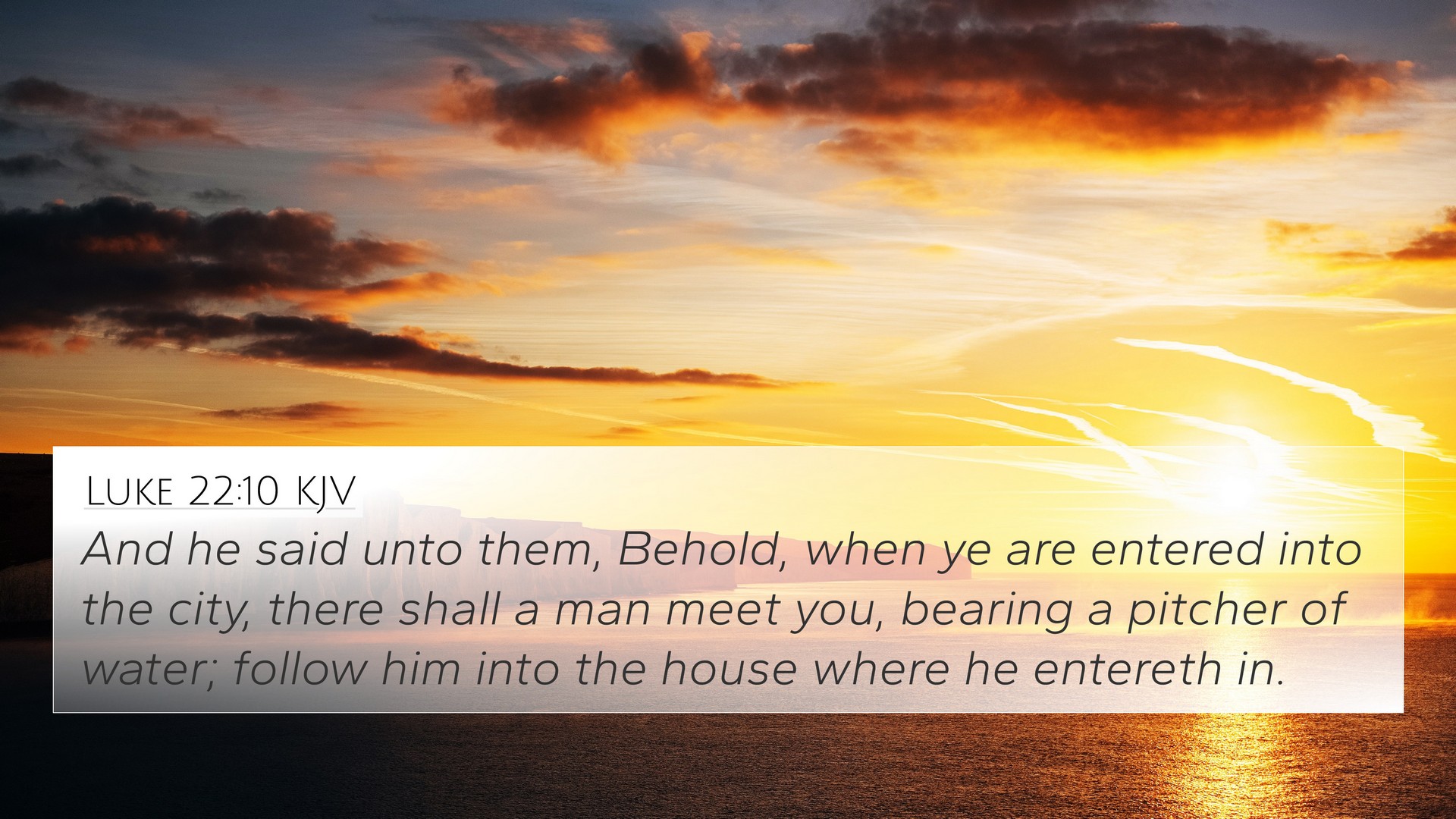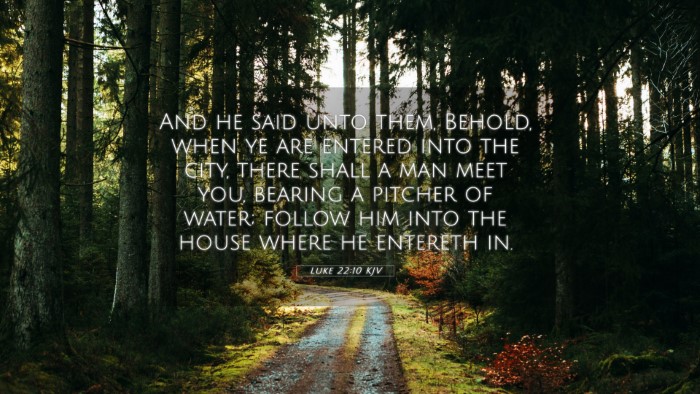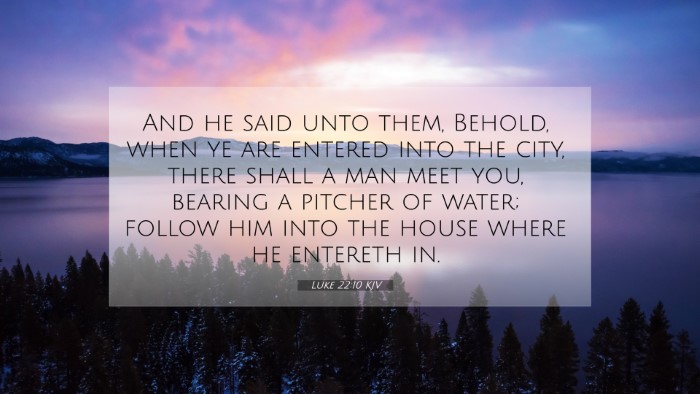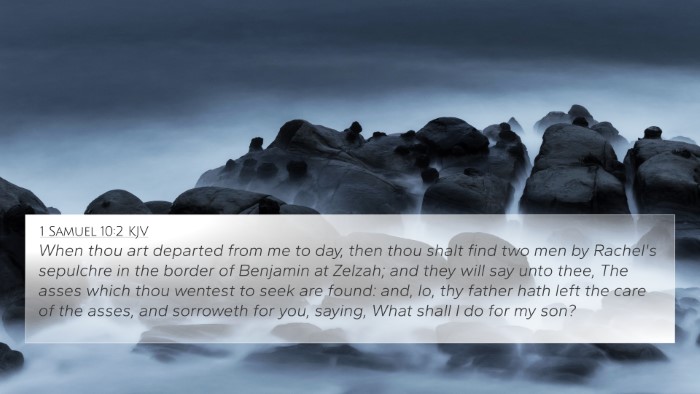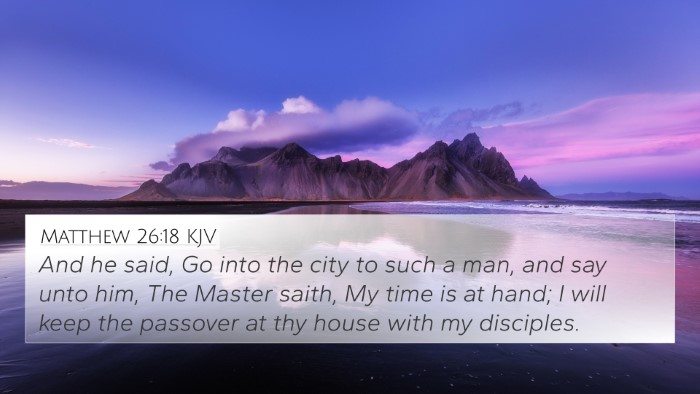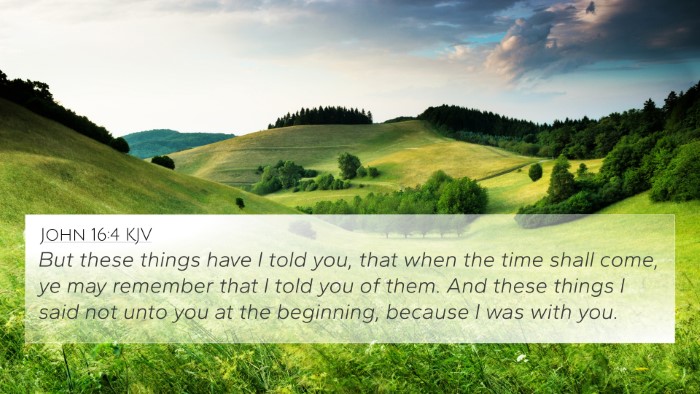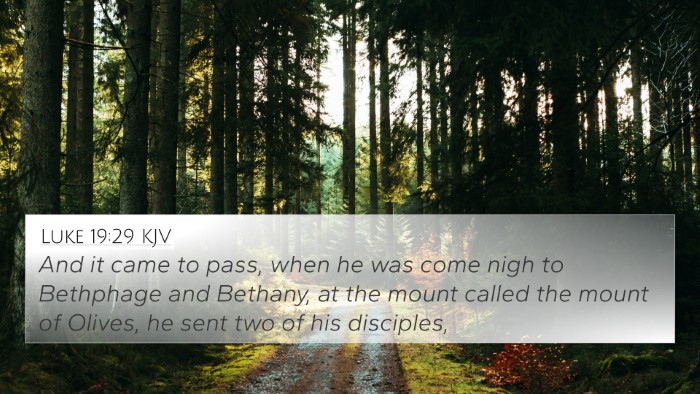Understanding Luke 22:10
In Luke 22:10, Jesus instructs his disciples on what to expect when they enter the city of Jerusalem: "And he said unto them, Behold, when ye are entered into the city, there shall a man meet you, bearing a pitcher of water; follow him into the house where he entereth in." This verse is rich with meaning, as it highlights the divine orchestration of events surrounding the Last Supper and Jesus' impending crucifixion.
Commentary Insights
- Matthew Henry: Henry emphasizes the significance of Jesus providing specific instructions, indicating the foreknowledge and sovereignty of Christ as He prepares for His final moments with His disciples. The meeting of the man with the pitcher symbolizes guidance that the disciples would receive from the Holy Spirit.
- Albert Barnes: Barnes points out that the man carrying the pitcher was most likely a servant, and this detail accentuates the humility involved in Jesus’ mission. It also serves as a representation of servitude in the Kingdom of God, a theme prevalent throughout Jesus’ teachings.
- Adam Clarke: Clarke elaborates on the ritual significance of the event, noting that the house to which the disciples were led would serve as the venue for the Passover meal. Clarke highlights the connection between this incident and the larger narrative of salvation history, emphasizing the fulfillment of prophecy and God’s providential care.
Key Themes
- Divine Providence: The instructions given by Jesus show that nothing occurs outside of God's plan. This theme resonates throughout both the Old and New Testaments, illustrating how God's hand guides believers every step of the way.
- Symbolism of Water: The pitcher of water serves as a metaphor for spiritual nourishment and the Living Water offered by Christ. This continues the biblical theme of water as a source of life, harkening back to references in John 4:10-14.
- Preparation for Worship: The Last Supper is a pivotal moment in Christian worship and theology, showcasing the importance of preparation in the believer’s life as they seek communion with God.
Bible Cross-References
- Mark 14:13-15: A parallel account where Jesus provides similar instructions for preparing the Passover, showcasing the consistency of biblical narratives.
- Matthew 26:18: Also details the arrangement for the Last Supper, emphasizing how multiple gospel accounts intersect and reinforce each other.
- John 7:37-39: Jesus refers to Himself as the Living Water, enhancing our understanding of the symbolism of the water pitcher in Luke 22:10.
- Exodus 12:3-11: Connection to the Passover meal, reiterating the significance of preparation in the context of Israel's deliverance.
- Isaiah 55:1: Invitation to those thirsty to come to the waters, which ties into the broader theme of spiritual thirst and fulfillment in Christ.
- Revelation 22:17: The invitation to drink freely from the waters of life is a promise that parallels Jesus’ earlier teachings, reinforcing the theme of salvation.
- Acts 10:33: The gathering of believers in preparation for receiving God's message reflects the community aspect displayed at the Last Supper.
Conclusion
As we explore Luke 22:10, we see a multifaceted view of Jesus' final days through inter-Biblical dialogue that links Old and New Testament themes. The understanding of divine guidance, symbolism, and the importance of preparation for worship resonates throughout scripture, inviting believers into a deeper relationship with God. For those seeking to understand how these verses connect, utilizing tools for Bible cross-referencing can enrich one's study and provide greater insight into the scriptures.
Further Study Suggestions:
- Explore the use of a Bible concordance to find additional verses connected to baptism and water.
- Utilize a Bible cross-reference guide for deeper inquiries into related themes.
- Consider cross-referencing Bible study methods to better understand biblical context and connections.
- Study the comparative Bible verse analysis of Jesus' teachings across the Gospels.
- Engage in a cross-reference Bible study to gain insight on other relationships between key doctrines in scripture.
